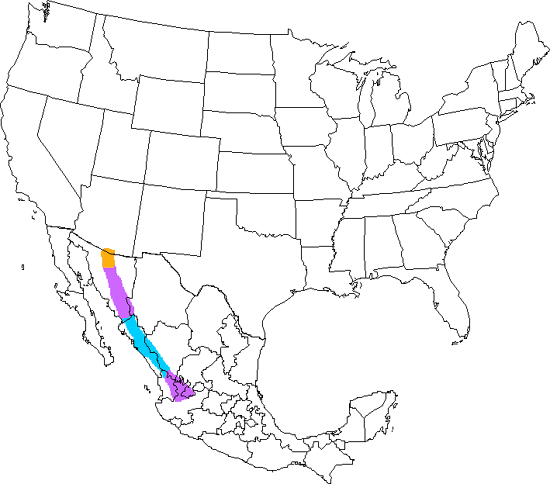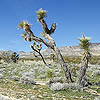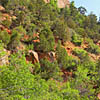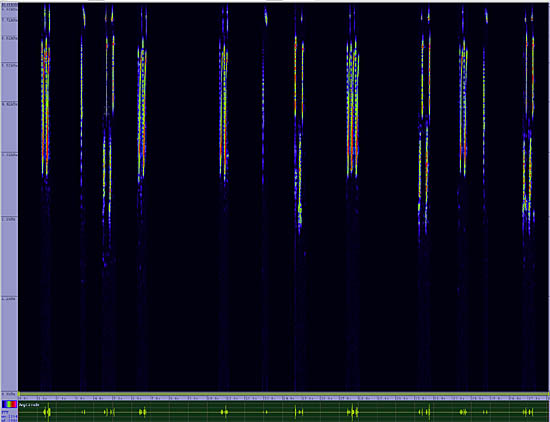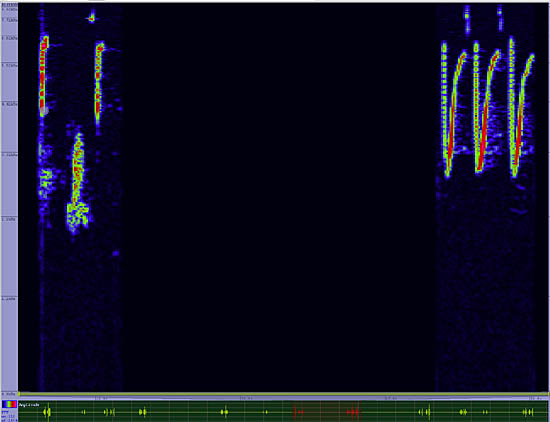Five-striped Sparrow
Aimophila quinquestriata

Perching
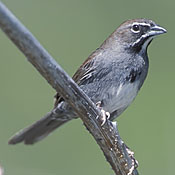
Length: 6 in. (15 cm )
Found only on steep, rocky, arid slopes the Five-striped Sparrow is difficult to find unless it is singing from a high perch of cactus or shrubbery. A single male can sing over 150 different songs. They feed on the ground looking for seeds most of the year, but during the nesting season find insects to feed to their young. The nest is a deep cup hidden in a grass clump or base of a bush.
The four-digit banding code is FSSP.
Bibliographic details:
- Article: Five-striped Sparrow
- Author(s): Dr. Biology
- Publisher: Arizona State University School of Life Sciences Ask A Biologist
- Site name: ASU - Ask A Biologist
- Date published:
- Date accessed:
- Link: https://askabiologist.asu.edu/activities/bird/five-striped-sparrow
APA Style
Dr. Biology. (). Five-striped Sparrow. ASU - Ask A Biologist. Retrieved from https://askabiologist.asu.edu/activities/bird/five-striped-sparrow
Chicago Manual of Style
Dr. Biology. "Five-striped Sparrow". ASU - Ask A Biologist. . https://askabiologist.asu.edu/activities/bird/five-striped-sparrow
Dr. Biology. "Five-striped Sparrow". ASU - Ask A Biologist. . ASU - Ask A Biologist, Web. https://askabiologist.asu.edu/activities/bird/five-striped-sparrow
MLA 2017 Style
Be Part of
Ask A Biologist
By volunteering, or simply sending us feedback on the site. Scientists, teachers, writers, illustrators, and translators are all important to the program. If you are interested in helping with the website we have a Volunteers page to get the process started.

